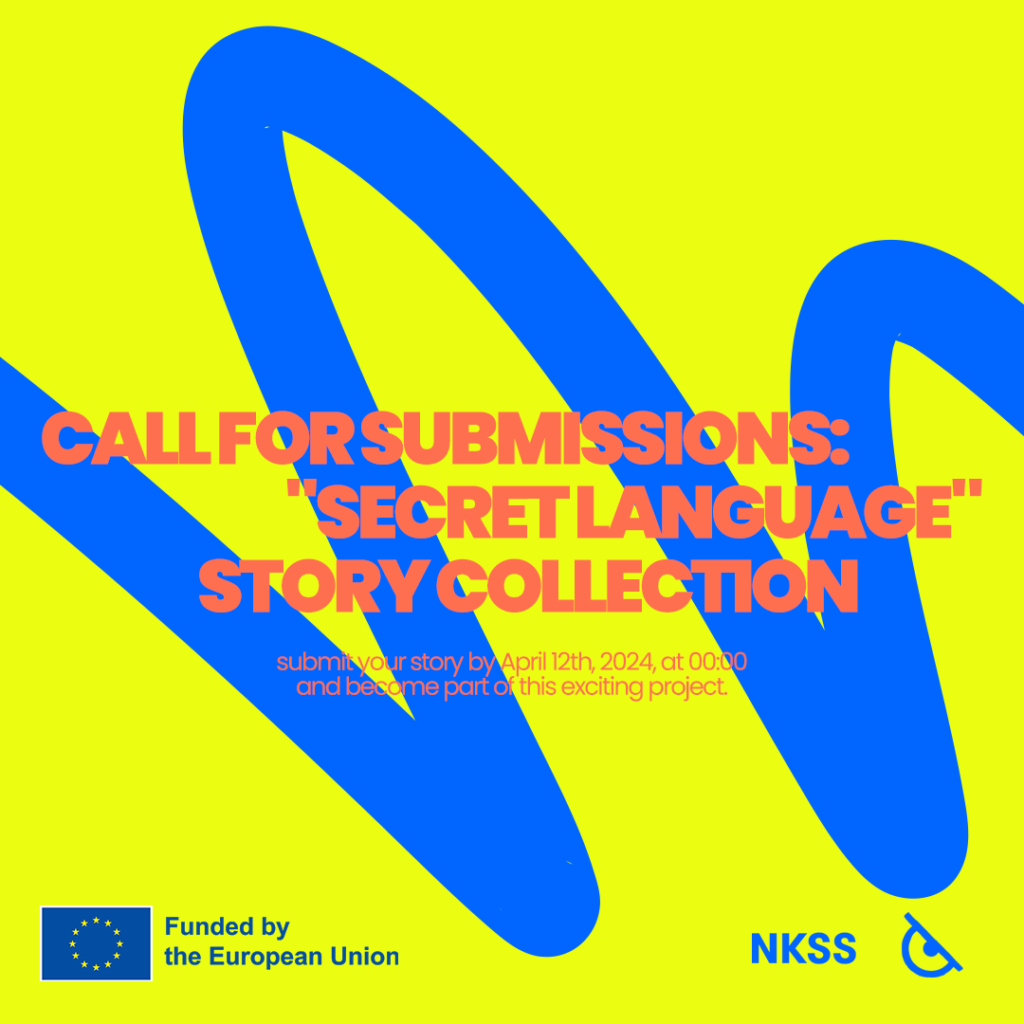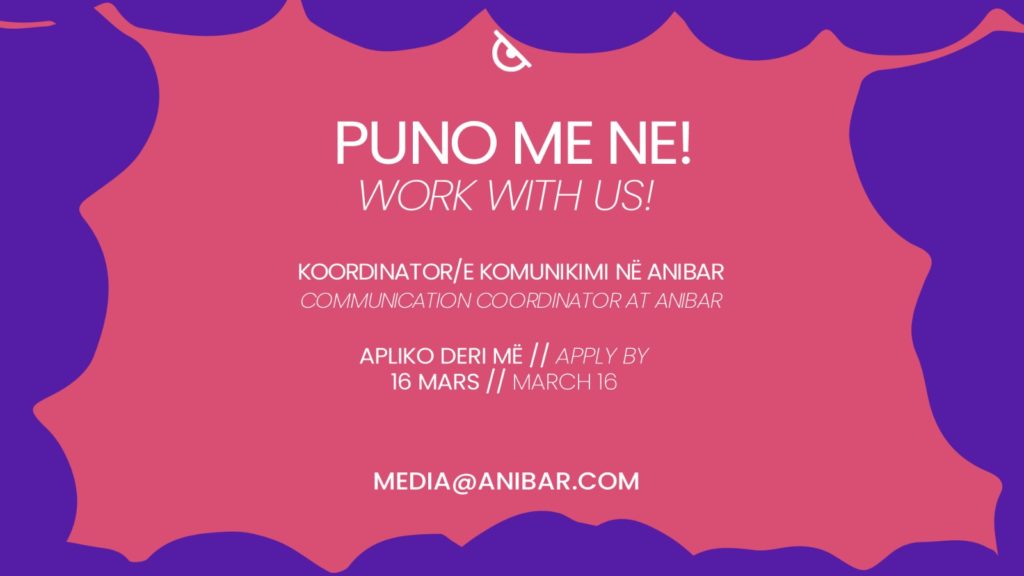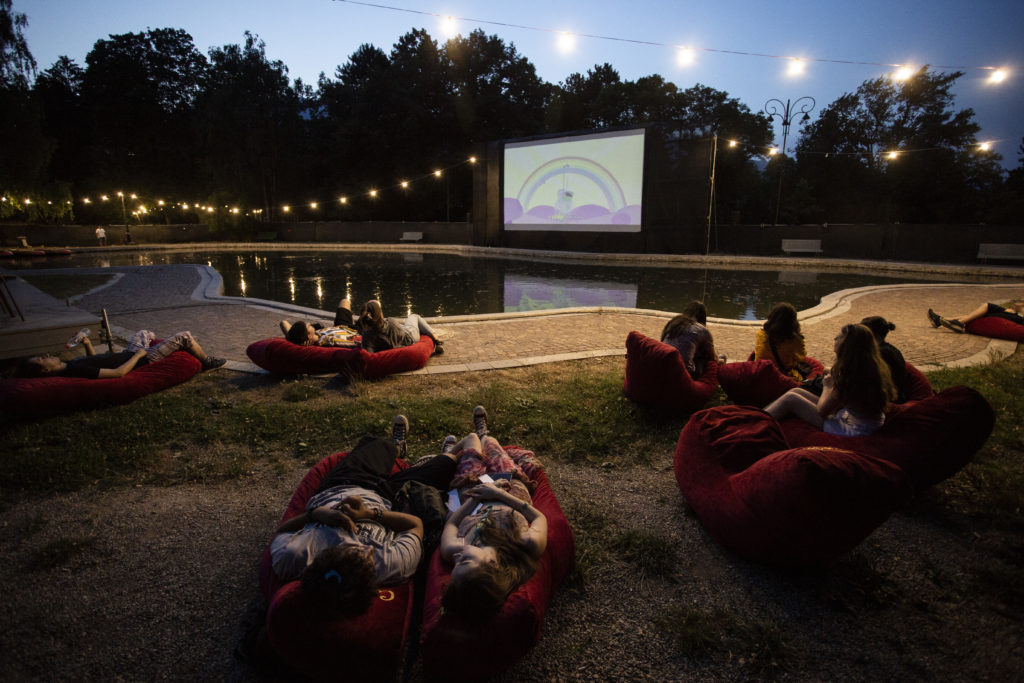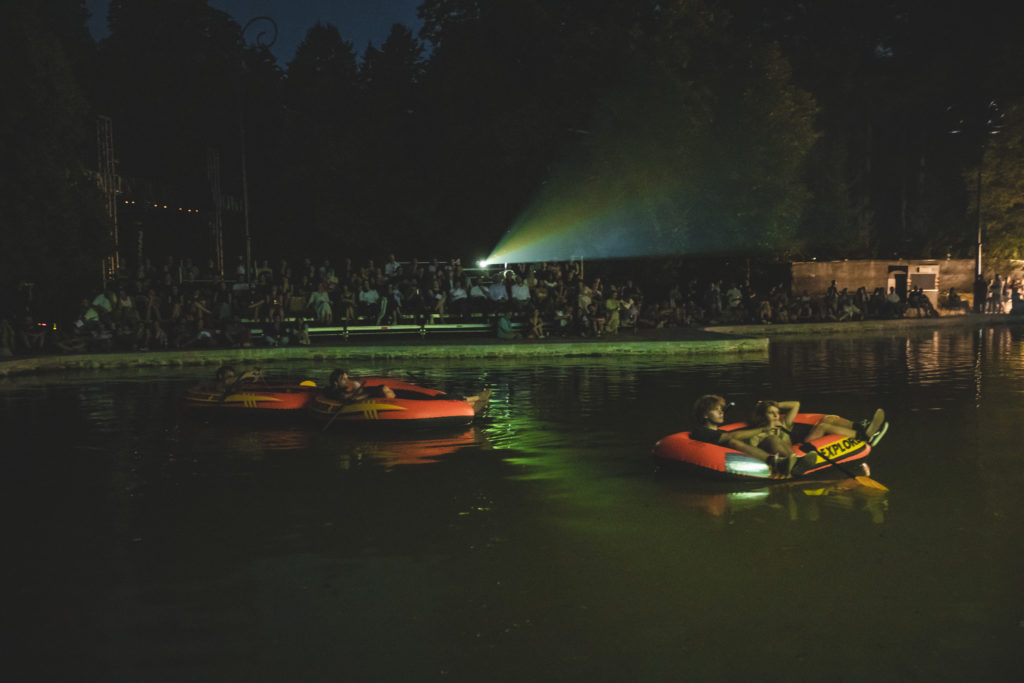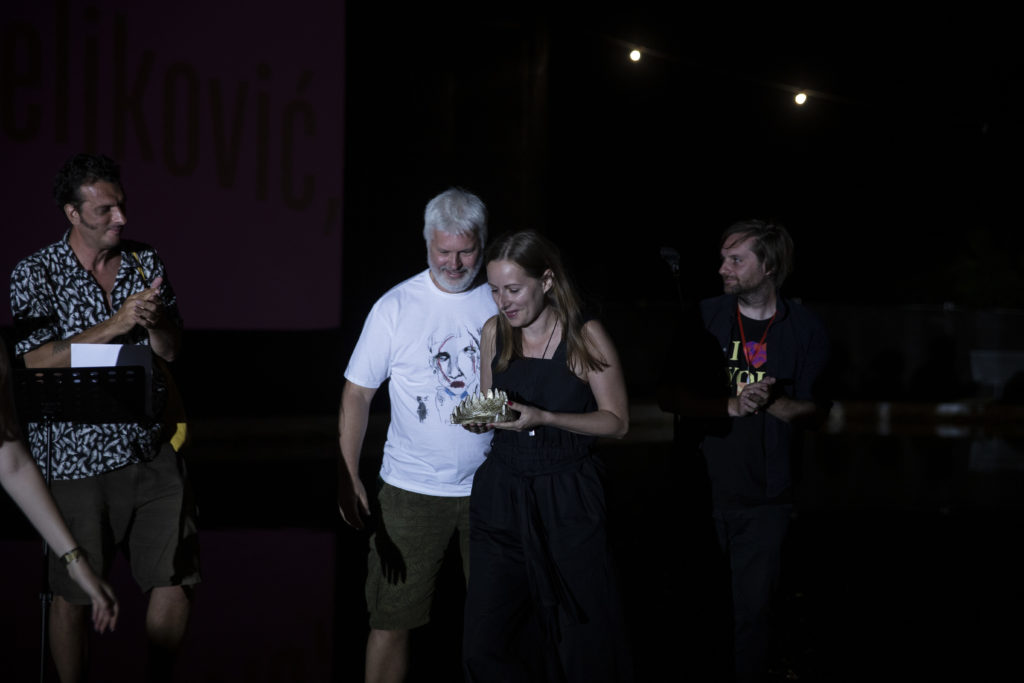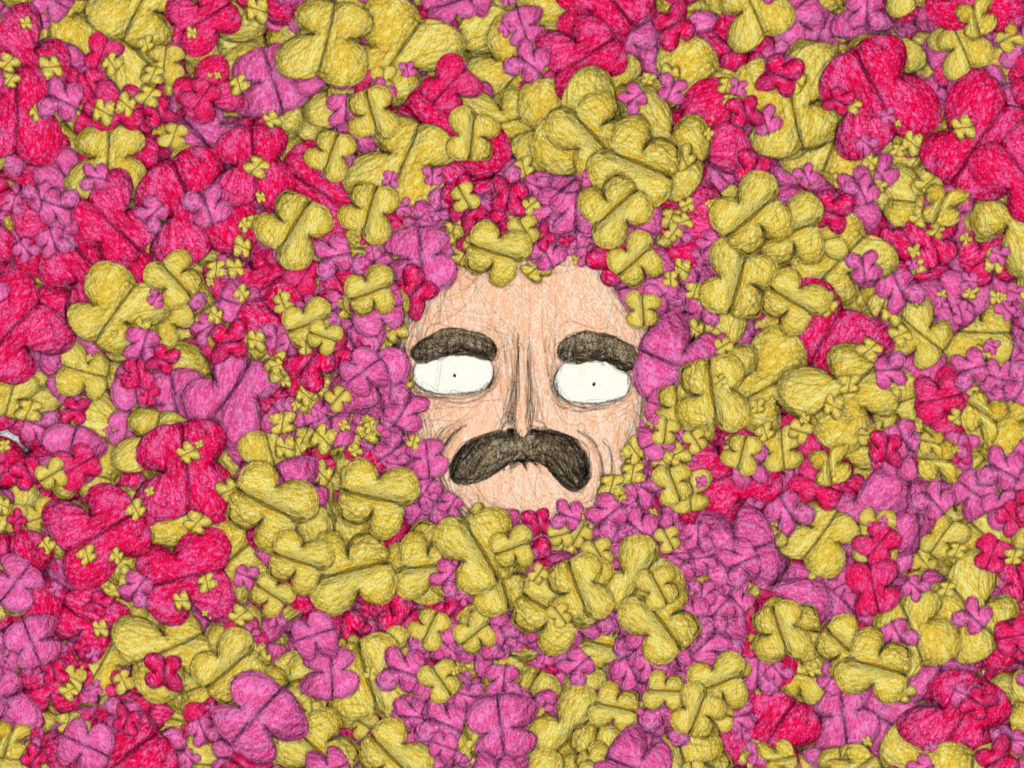Discovering The Power Of Self-Love: A Journey Toward Acceptance And Understanding
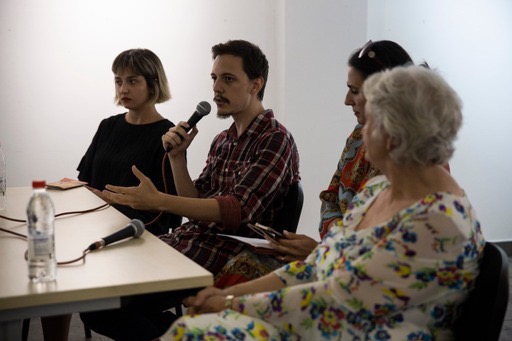
Personal stories and insights on the path to self-discovery and nurturing authentic connections in Anibar 14
Along the journey of self-creation, the concept of love stands as a cornerstone. Self-love involves deep appreciation, acceptance, and nurturing of our own being, and through ourselves, of others. Finally, how can we love others if we have not yet learned to love ourselves? Self-love is a commitment to treat ourselves with compassion, gentleness, and, above all, understanding. But how can we take care of ourselves, if we live in modern systems that capitalize on all spheres of life, and project norms of love, for us, often in an exclusionary form?
The third discussion within the thematic panels organized in the 14th edition of the International Animation Festival – Anibar, in Peja, raised exactly these questions and I offer personal accounts, but also professional advice from carefully selected panelists, for this. The well-known Albanian writer, activist, and producer working in America, Shqipe Malushi, director of QIPS and activist Bind Skeja, activist Medinë Dauti, and psychologist Fatlinda Nitaj. The panelists shared their experiences, in their journeys or towards finding ways to love themselves, and through this others around them, or even from the work they do daily with the LGBTIQ+ community, not only, in Kosovo but outside the borders.
Fatlinda Nitaj started the discussion by underlining the importance of self-love, in a period when a lot is demanded of us by the society around us. “Sometimes taking care of others we forget to take care of ourselves. But self-love means respect for oneself, and others, and it is extremely important to create healthy relationships”, she said at the beginning of the discussion, encouraging others to reflect on the way of self-care and the importance it has for everyone’s health and well-being.
Bind Skeja, founder of “Linja e Jeta”, a telephone support line for people with feelings of anxiety, depression, and suicide prevention, and director of the QIPS Organization, shared his experience with self-love and the work they do with the community, highlighting three important aspects that should be taken into account when talking about self-love, in the local context but not only. The first aspect according to him includes what is self and self-love. “Now we have often heard this phrase ‘me, myself, and I’, which sounds quite personal. But self-love is not personal, and it shouldn’t be personal. Because in that form it is not healthy. Love itself should be, the love we give to ourselves, to do certain things that we like but also connect us with the community”, said Skeja. The second aspect according to him includes the community. Skeja said that working for the community offers an incredible opportunity for connection and love and makes us happier, more committed and connected. “I don’t work for free, voluntarily, without any reason, it is precisely the love that I get when I work for the community that pushes us to continue, and this is very important,” he said. Mentioning among other things that there is a reason why suicide rates are higher among people of the LGBTIQ+ community. “If you get so much hate from the community, how can you love yourself then?” he said, further elaborating on the role of the community in the concept of self-love. Meanwhile, the third aspect, Skeja elaborates further, is undoubtedly the political aspect, “It is not surprising that we have to fight so much for self and love because capitalist systems do not enable a person to love himself”, said Skeja, illustrating this with the condition of women in our society and the patriarchal tendency to minimize her role in society, and perfect it through different products, or to behave in certain ways under social norms. This was also illustrated by the very personal confession of Medinë Dauti, the activist who publicly denounced her sexual harasser and the injustice that the justice system had caused her throughout her reporting and her struggle to reclaim her space and to validate her confession. Dauti talks about the challenges she had to love herself in the three years of the process of seeking justice for the pressures she received due to reporting her high school teacher for sexual harassment. In September 2022, Dauti appeared publicly on the show “Life in Kosovo” and narrated the whole incident, but also how the men of the justice system did not support him at all, and they pressured him throughout the reporting period. “No one understood me, and there were people who thought and said that it should not have been done [reporting]. But for me, self-love started the moment I started with pranu. Accept that I am a woman, accept that an injustice has happened to me, accept everything, and decide to go public. When I went public, I felt like I was reclaiming the space that 10 men had taken from me for several years. I started with my own will, despite everything”, she said in a very moving story that was well received by the audience.
A very interesting look during the discussion could be analyzed from the confession of human rights activist Shqipe Malushi, whose personal journey for many in Kosovo can easily be transformed into a personal reflection. While Malushi told the story of her migration to the United States of America, her rebellion against the patriarchal culture that dominated Albanian culture, and the tendency to escape from the identity that cultivated this patriarchal culture, she deals with a rather complex but very important issue, that of self-survival within national identity and self-survival through national identity. “When I went to America, everything I was fighting and running away from, I started turning into love,” she said. Malushi is an activist for women’s rights and has continuously worked with the women of the Albanian community in America, to raise their awareness of well-being, engagement in public spaces, equality, empowerment, etc. Malushi shows how much resistance she encountered from the Albanian community, mainly men, during her work. “We held meetings with women, 200-300 women, while for the entire time of the meetings, the husbands of these women waited like guards outside the restaurants where we held them, and said to me ‘what are you doing with our women'”, she confesses as a joke, explaining the process of change as something scary for people and something that requires building trust and consistency. Among other things, Malushi talked about her experience in Afghanistan, where she says she received the greatest love ever, precisely because she engaged with the community there.
Leonora Aliu
